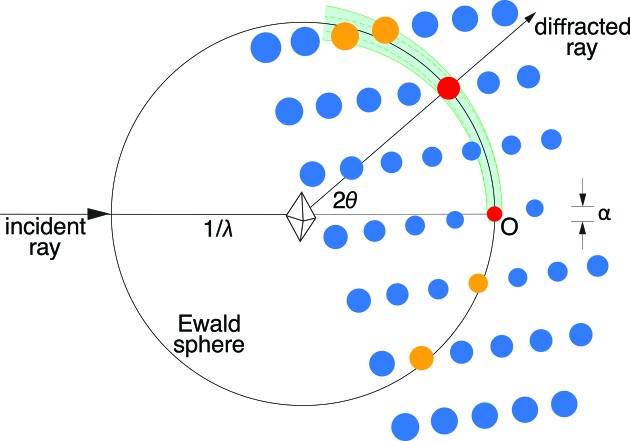Figure 4.
The Ewald proximal volume (EPV) metric is used to evaluate integration success. The EPV (green shaded area) specifies the volume of reciprocal space containing the diffracting centroid positions of recorded reflections. This is equivalent to the assertion that reciprocal lattice points must touch the Ewald sphere to satisfy the diffracting condition. The EPV is defined by rotating the shaded area around the incident beam vector. The diameter α of the reflection F 000 (the red peak at the origin) is determined by the mosaic block size, while the mosaic rotational spread determines how rapidly the spot size increases versus distance from the origin. IOTA seeks to minimize the overall EPV, while maximizing the number of strong [I/σ(I) > 5 or user-supplied threshold] integrated reflections within that volume.

